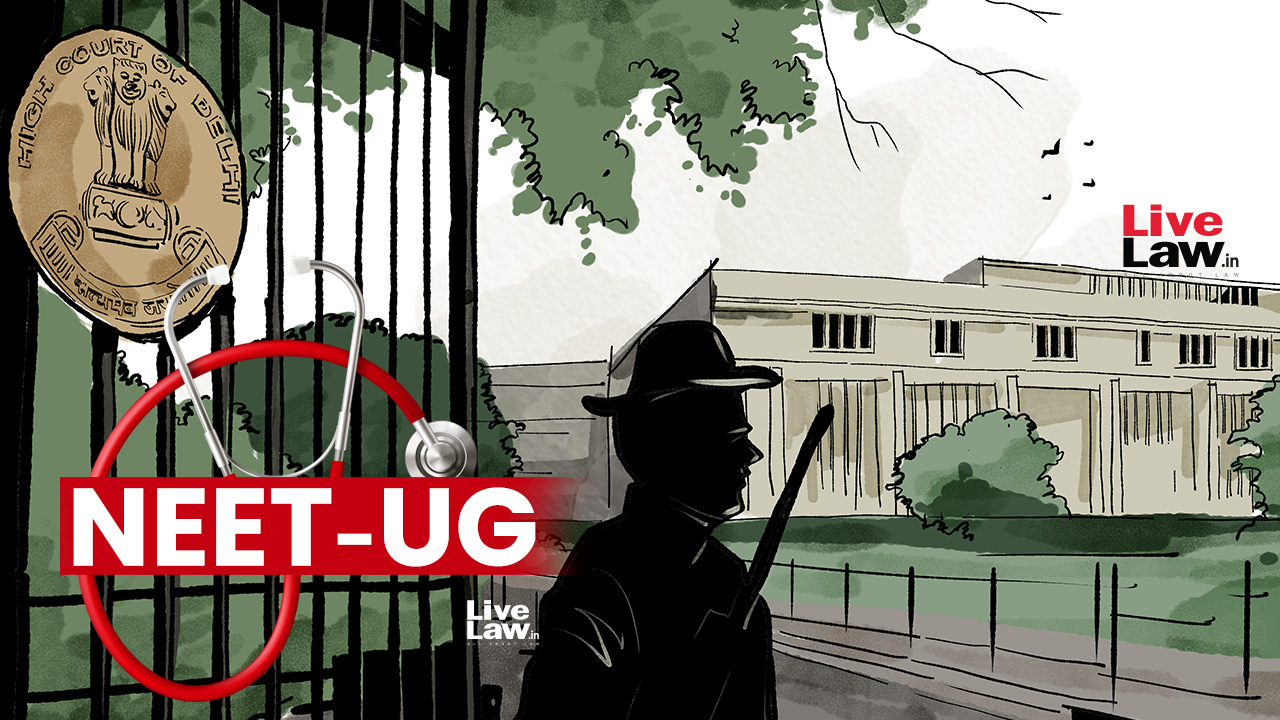Delhi High Court Orders NTA To Streamline Biometric Process For NEET UG, Upholds Direction To Constitute Grievance Redressal Framework


The Delhi High Court has directed the National Testing Agency (NTA) to streamline the biometric process while conducting National Eligibility-cum-Entrance Test (NEET-UG) for future examinations.
A division bench comprising Chief Justice DK Upadhyaya and Justice Sachin Datta upheld the direction of a single judge asking NTA to constitute a Standing Grievance Redressal Committee to resolve issues of candidates who suffer loss of time due to technical issues, without any fault on their part.
However, the Bench dismissed the challenge of few candidates who undertook NEET UG 2025 and set aside the direction of the single judge asking NTA to award ‘grace marks’ to them by applying ‘normalization formula.’
It was the candidates’ case that they lost time during the course of conduct of the examination, which was attributable to acts of omission and commission by the personnel deployed at the examination venue, without any fault on their part.
Rejecting their plea for grace marks, the Court found merit in the contention of the counsel for the NTA that the difficulty in the biometric authentication of the concerned candidates was attributable to the conduct of the concerned examinees themselves.
“There is also a larger issue that concerns the Court viz. the chaotic consequences of extending ‘marks improvisation’ for individual delays in biometric authentication for reasons not attributable to the testing agency. Such an approach would open the floodgates to claims by candidates who experienced even minor technical delays in biometric authentication,” the Court said.
It added that biometric verifications are part of the mandatory security process, which ensure the integrity of the examination by preventing impersonation.
The Bench said that granting marks for delays in the process of biometric verification, that too for no fault of the NTA, would not be a justifiable course to follow.
The Court further said that the concept of “supernumerary rank” has no basis in the extant examination regulations and that the insertion of a supernumerary rank, though intended to safeguard the rights of other candidates, alters the inter-se-merit between candidates.
“Counselling and seat allocation in NEET (UG) functions on a rigid rank regime. Inserting an additional rank, even with a suffix, would affect the inter-se cut off thresholds and the allocation sequence, thereby impacting the rights of other candidates,” the Court said.
Title: NATIONAL TESTING AGENCY v. SATYA NISHTH & OR

